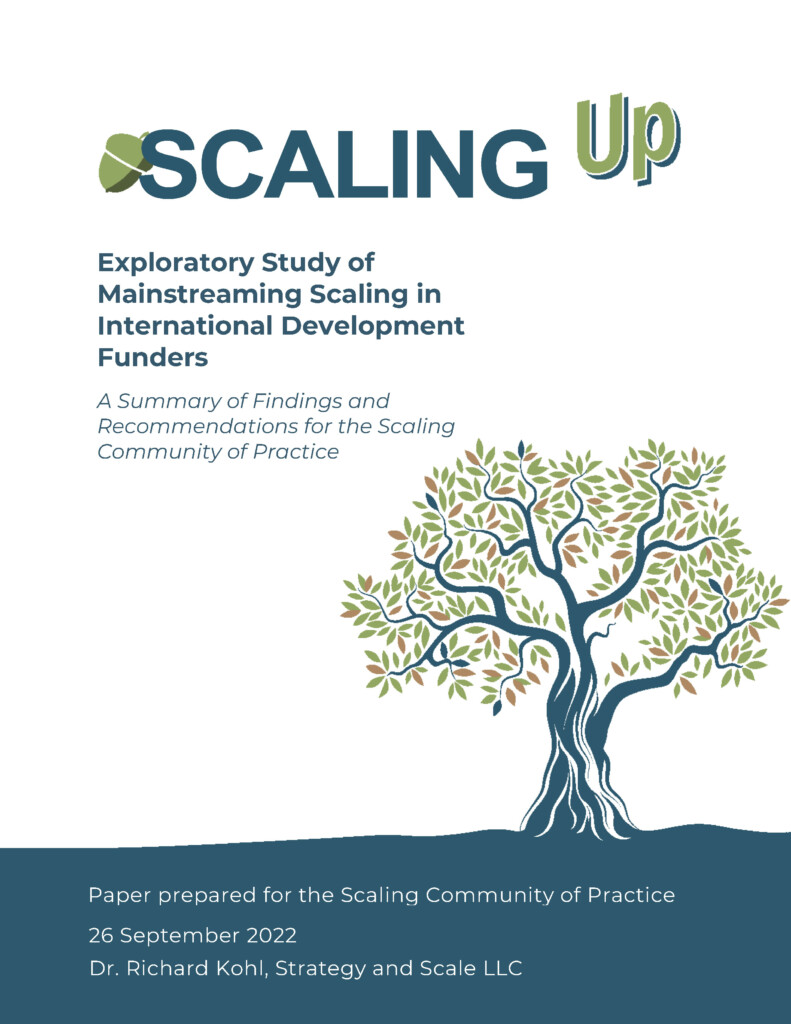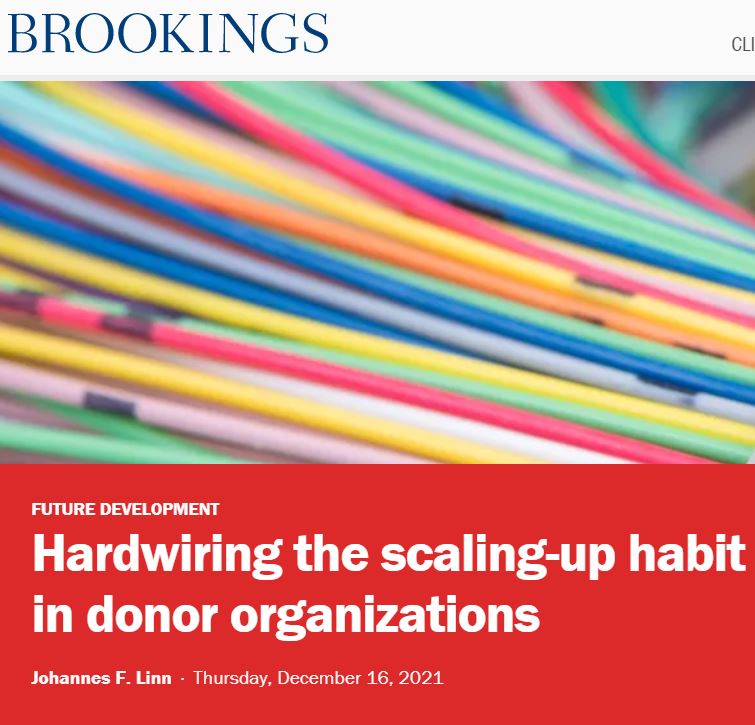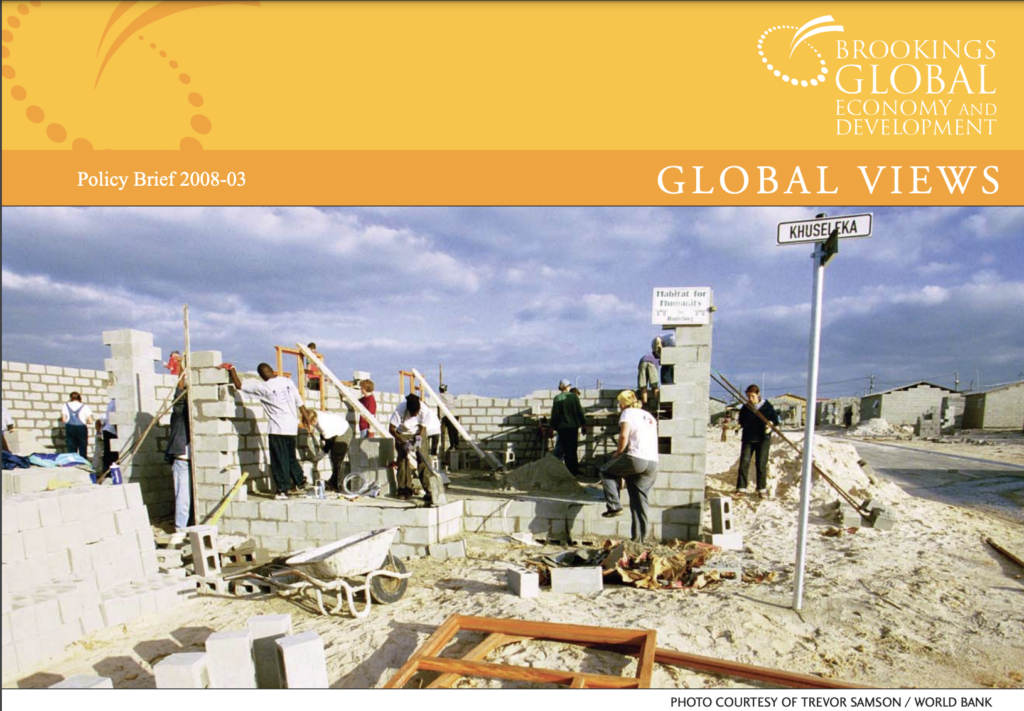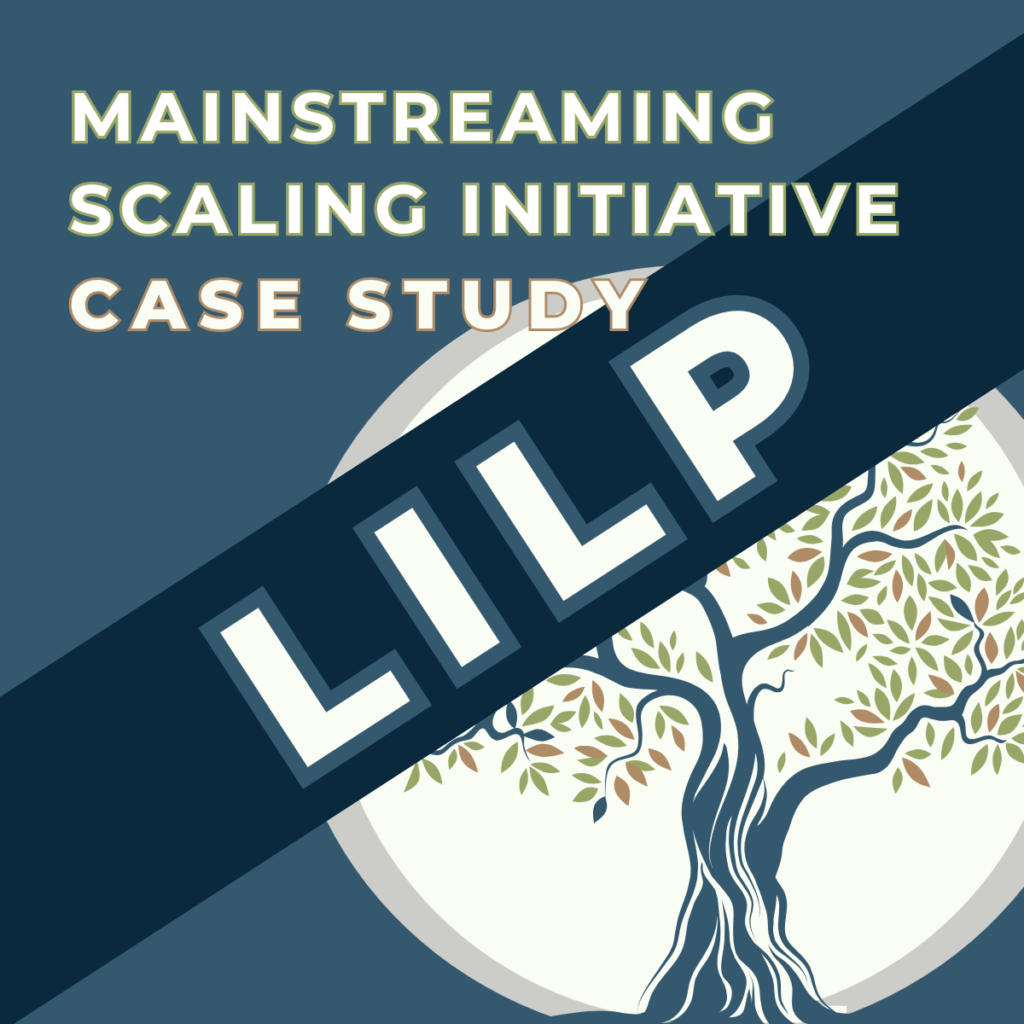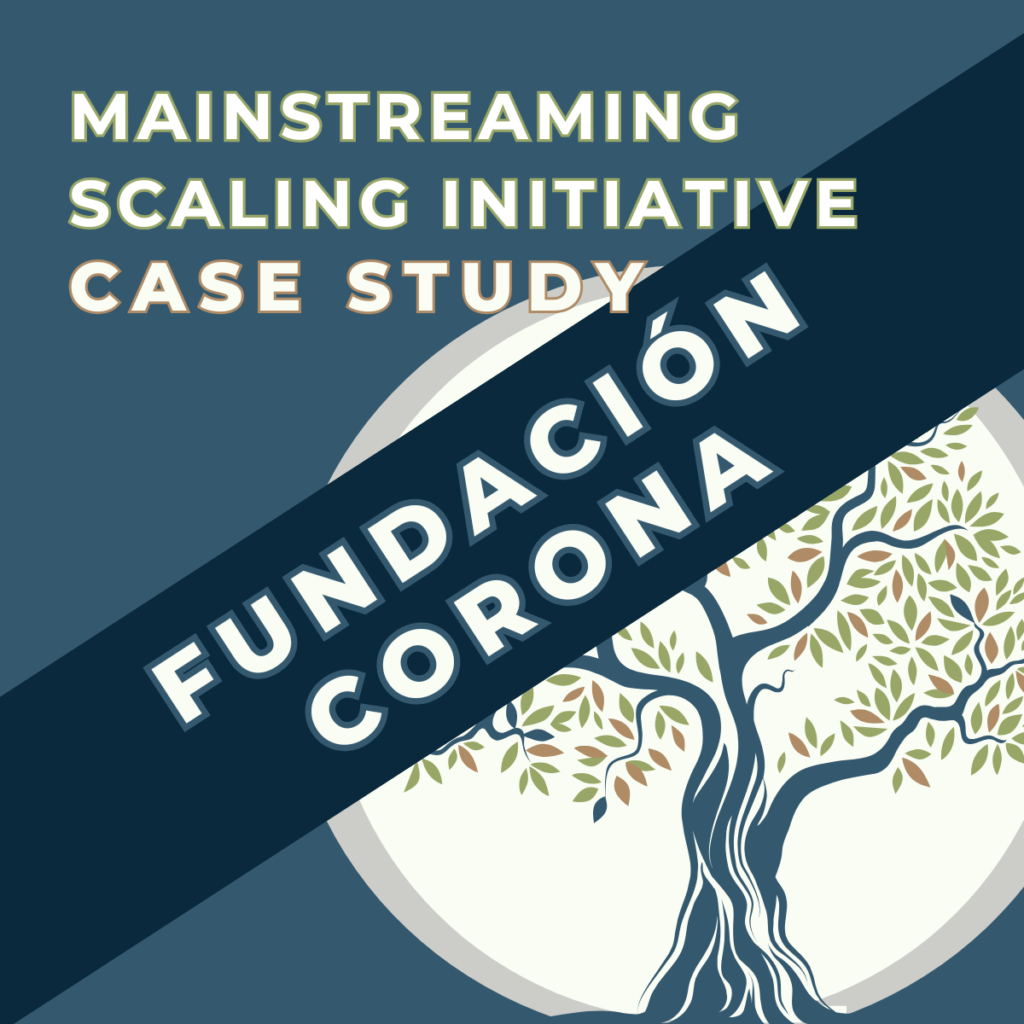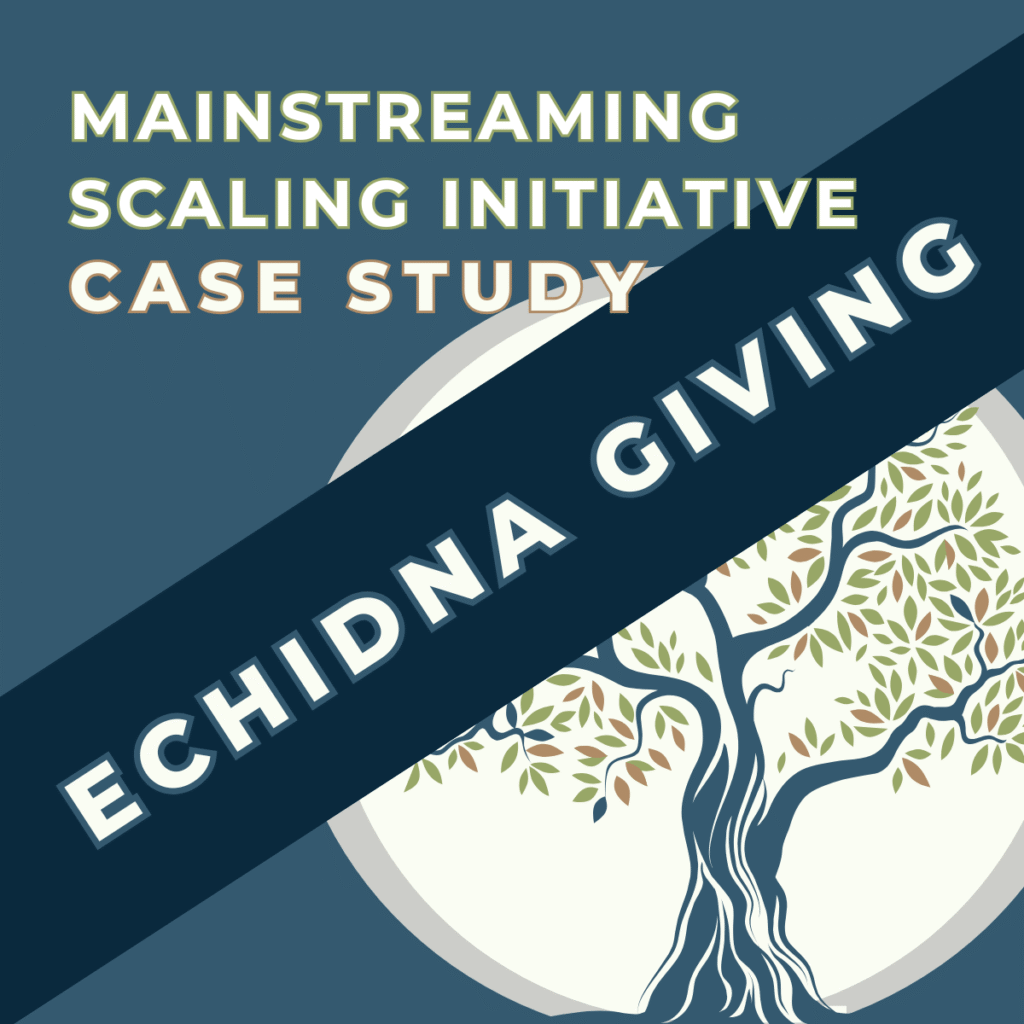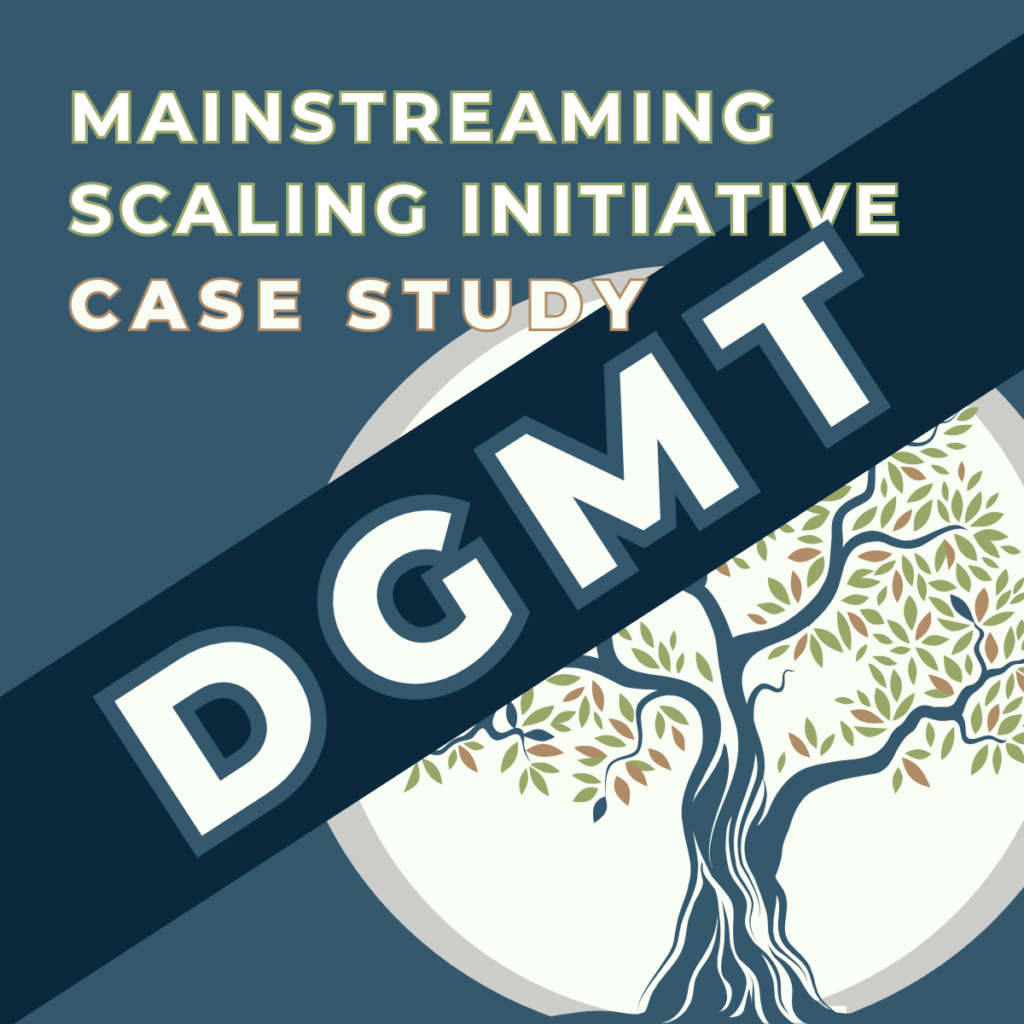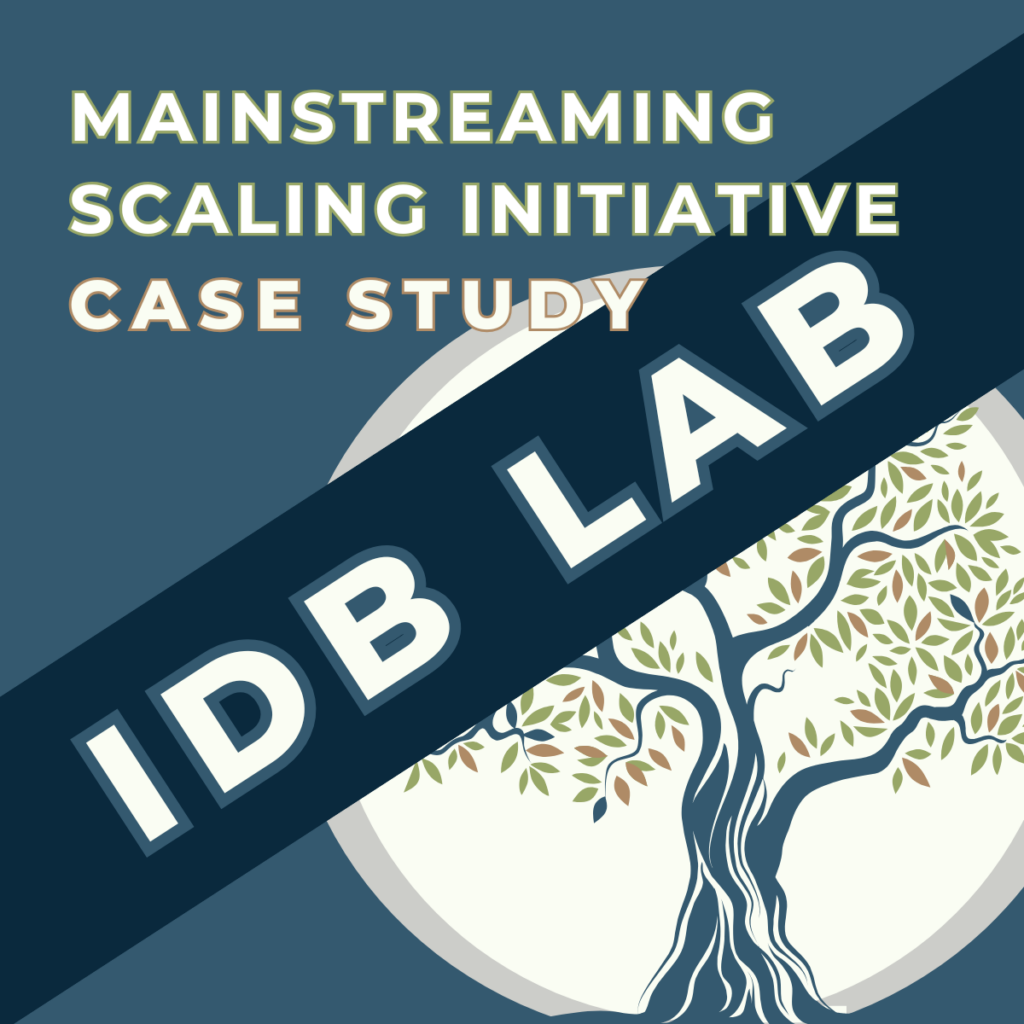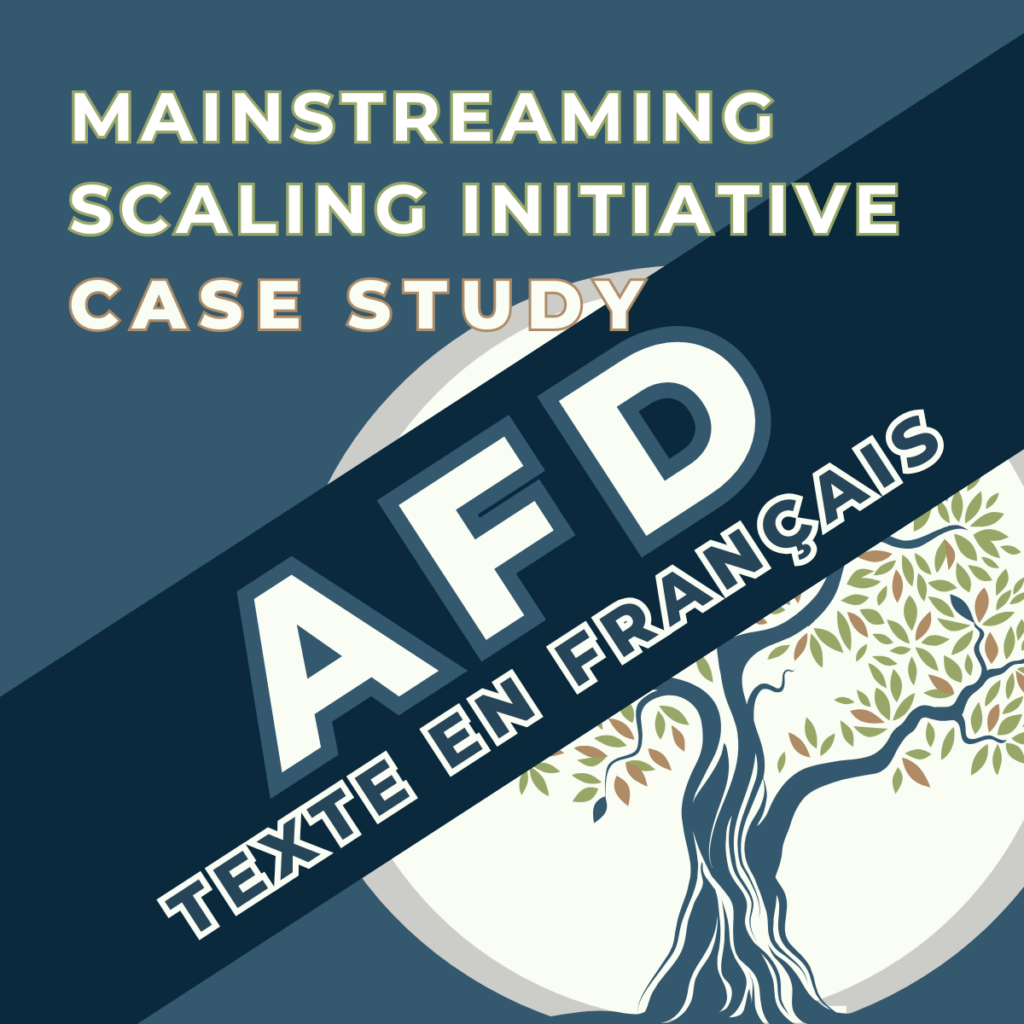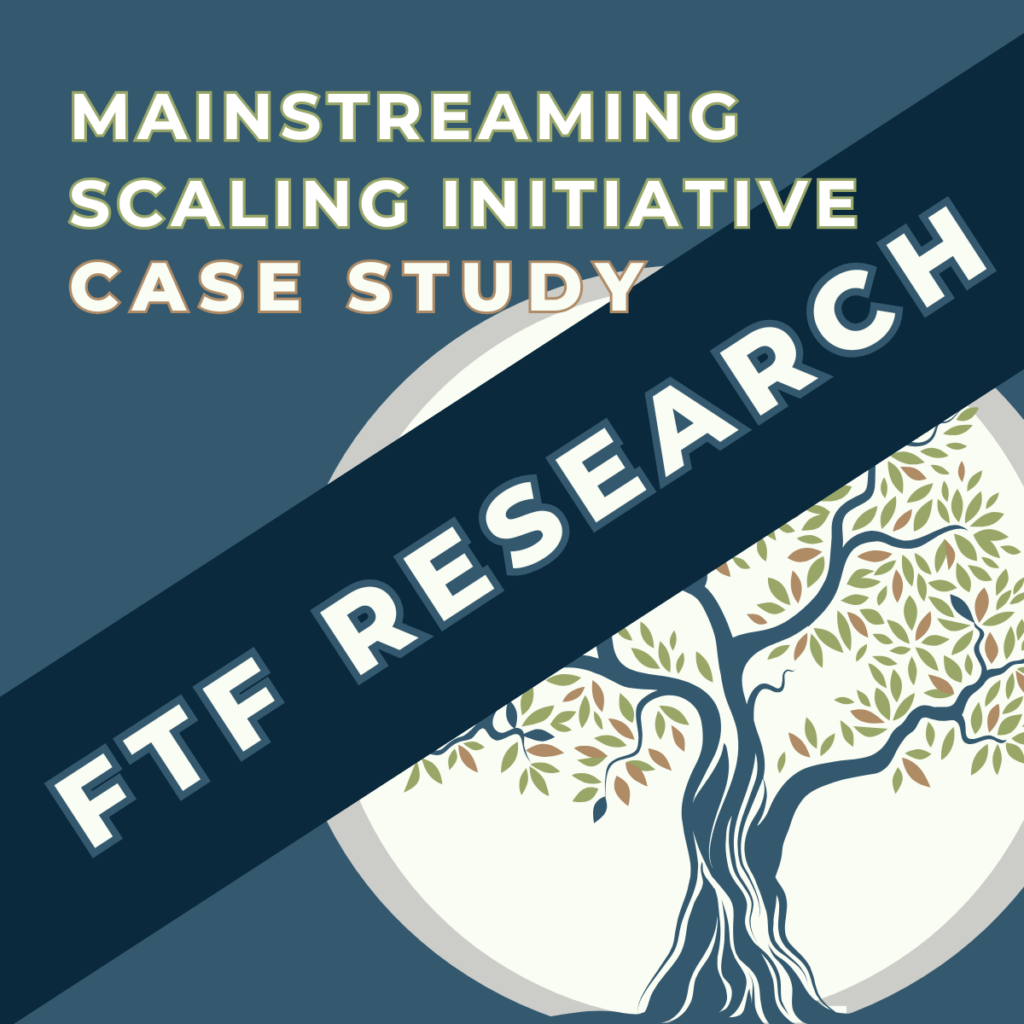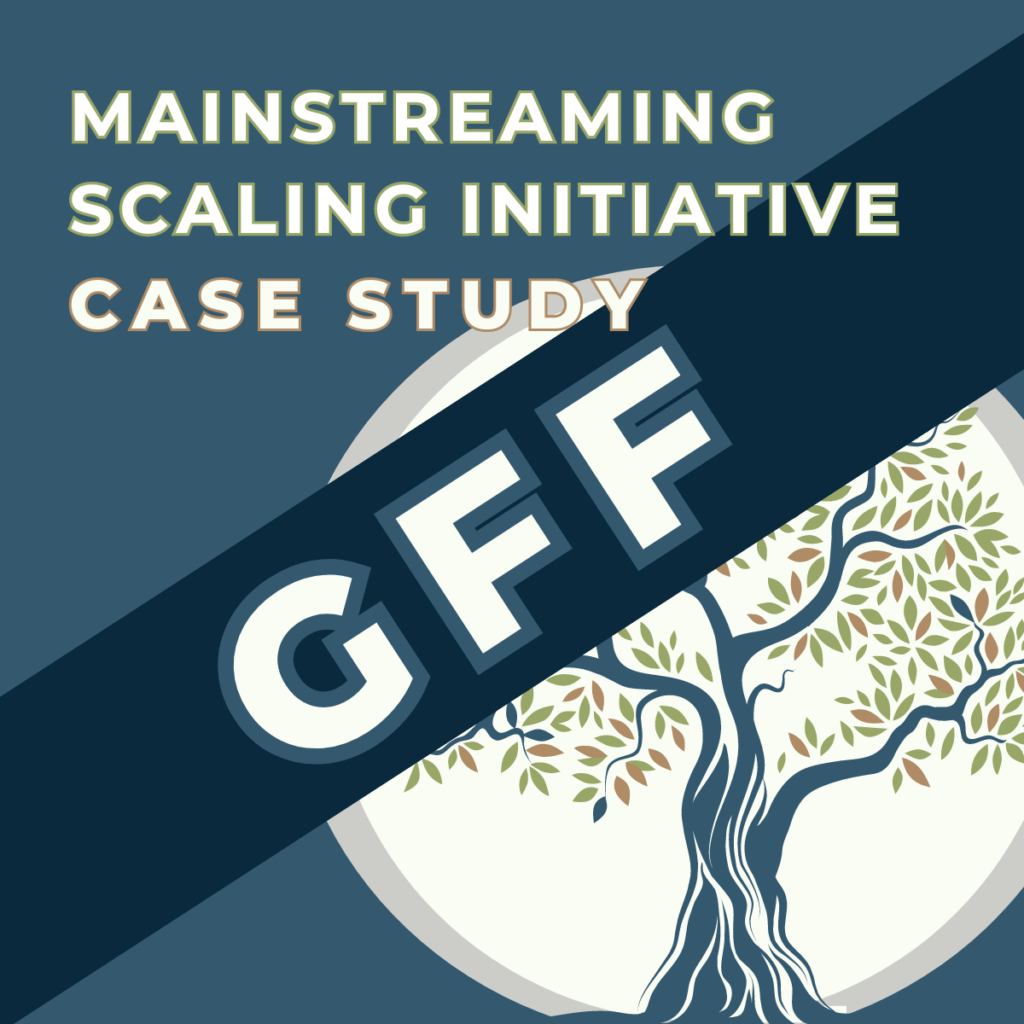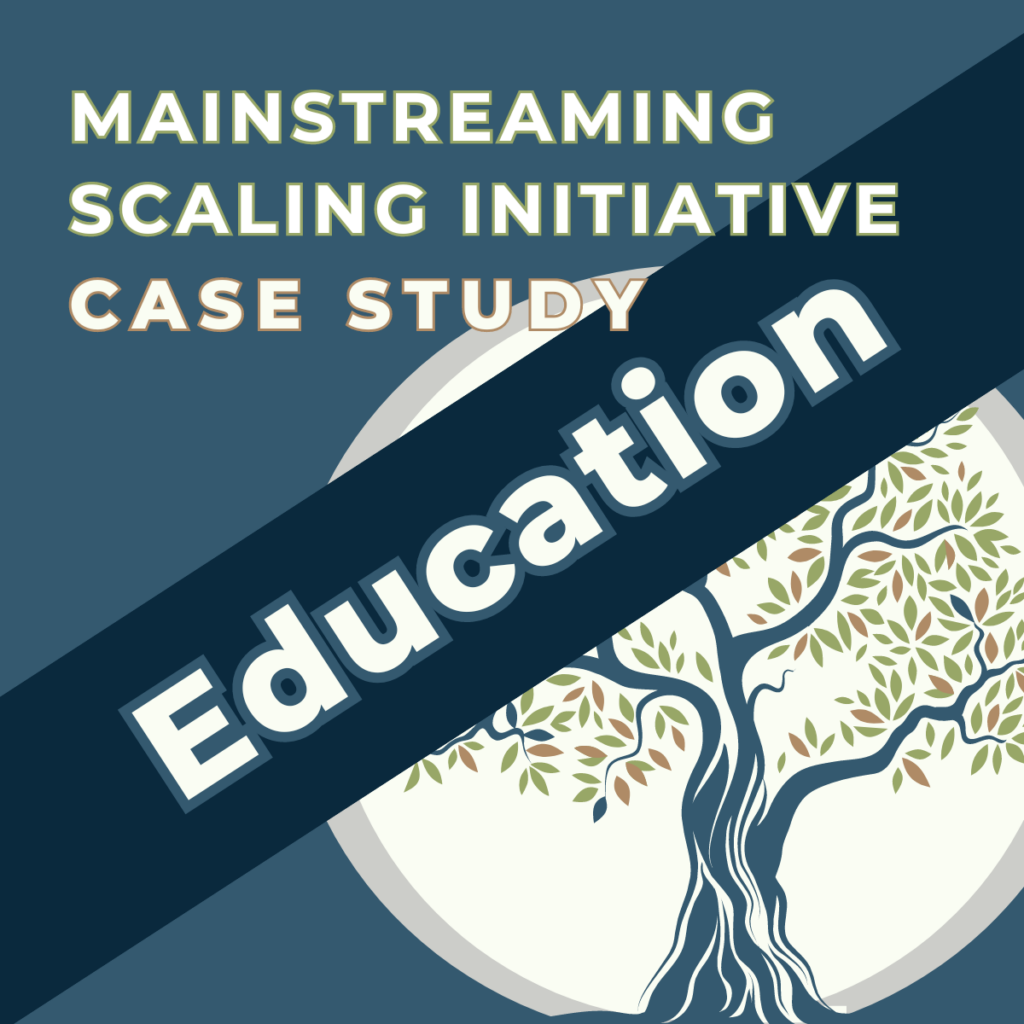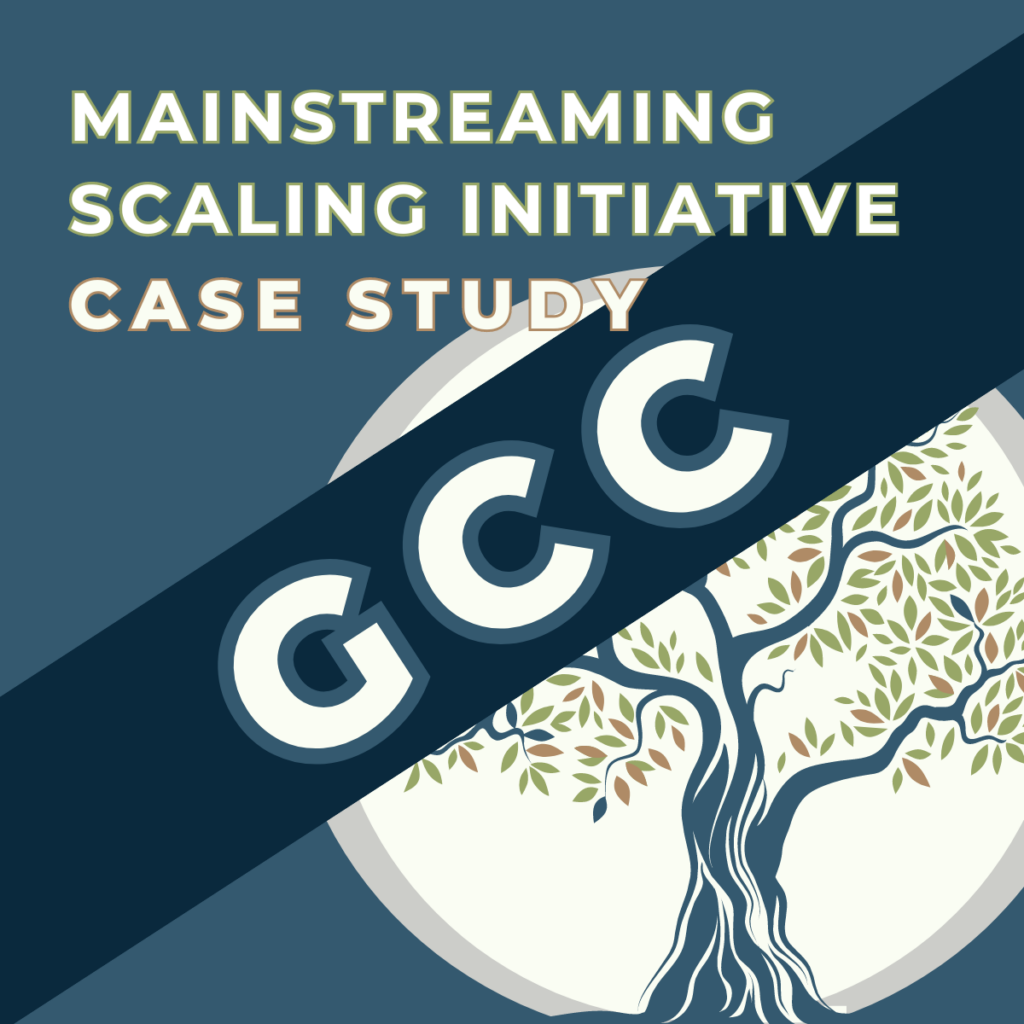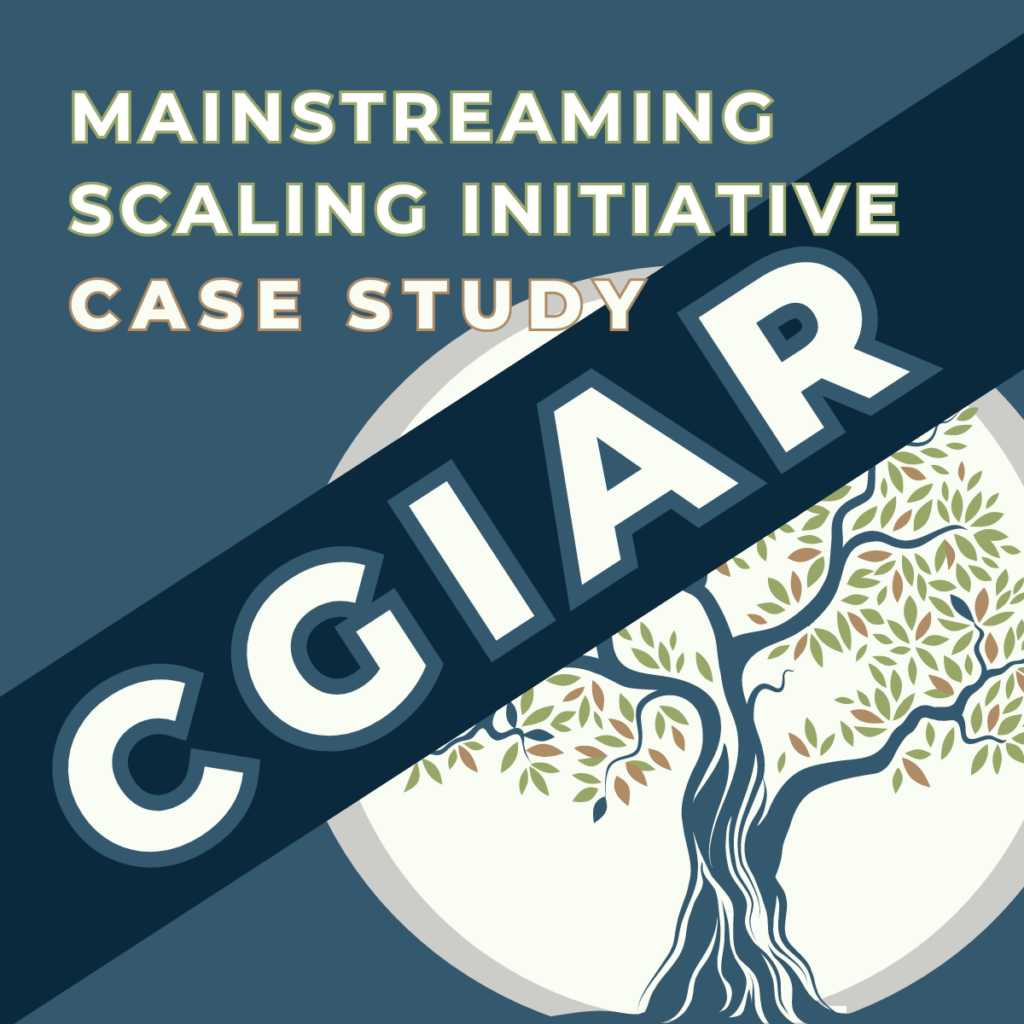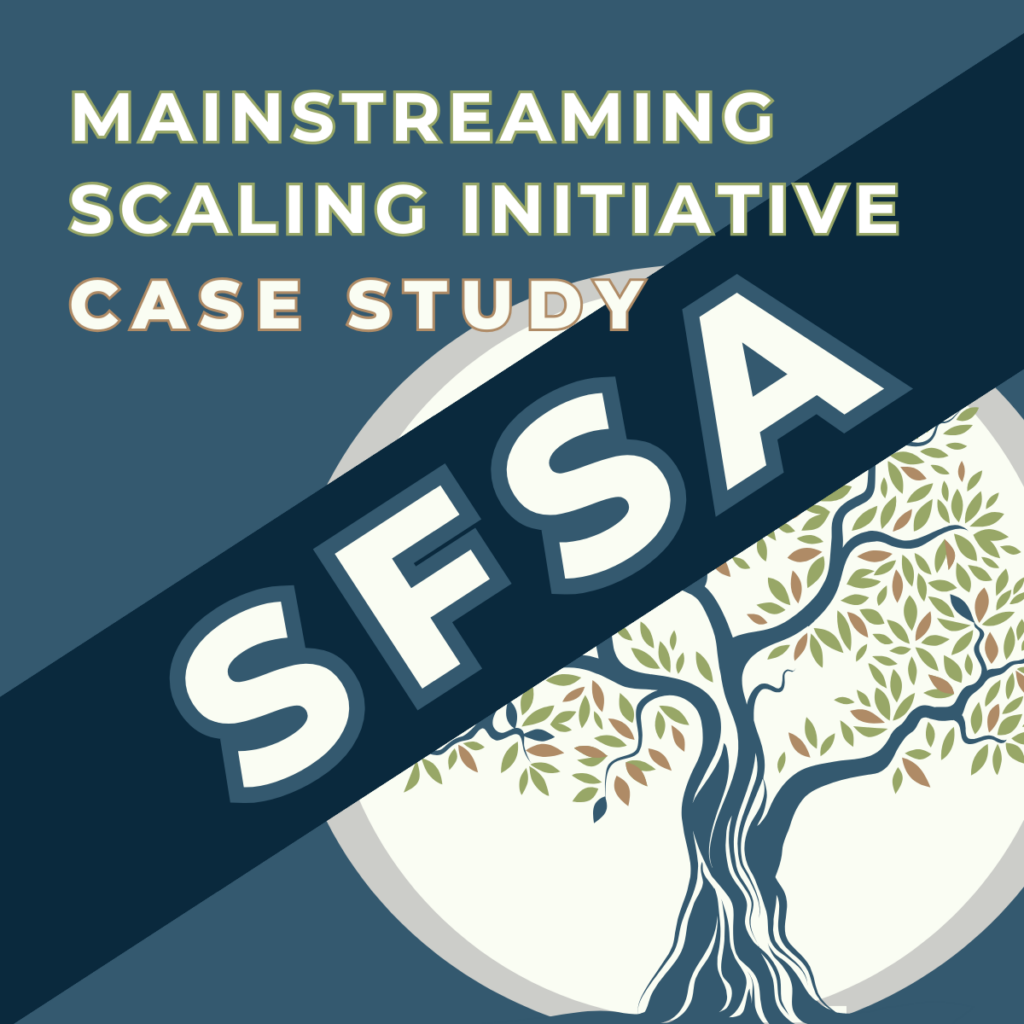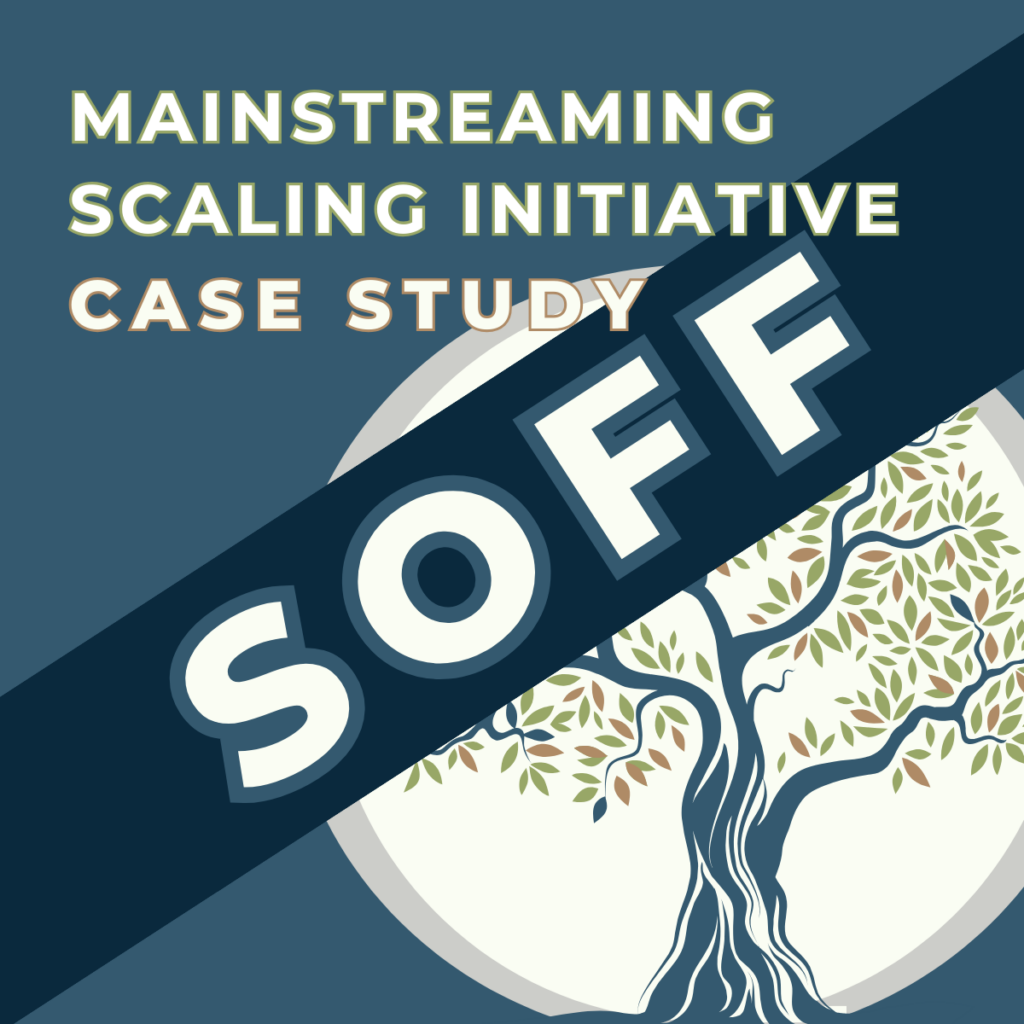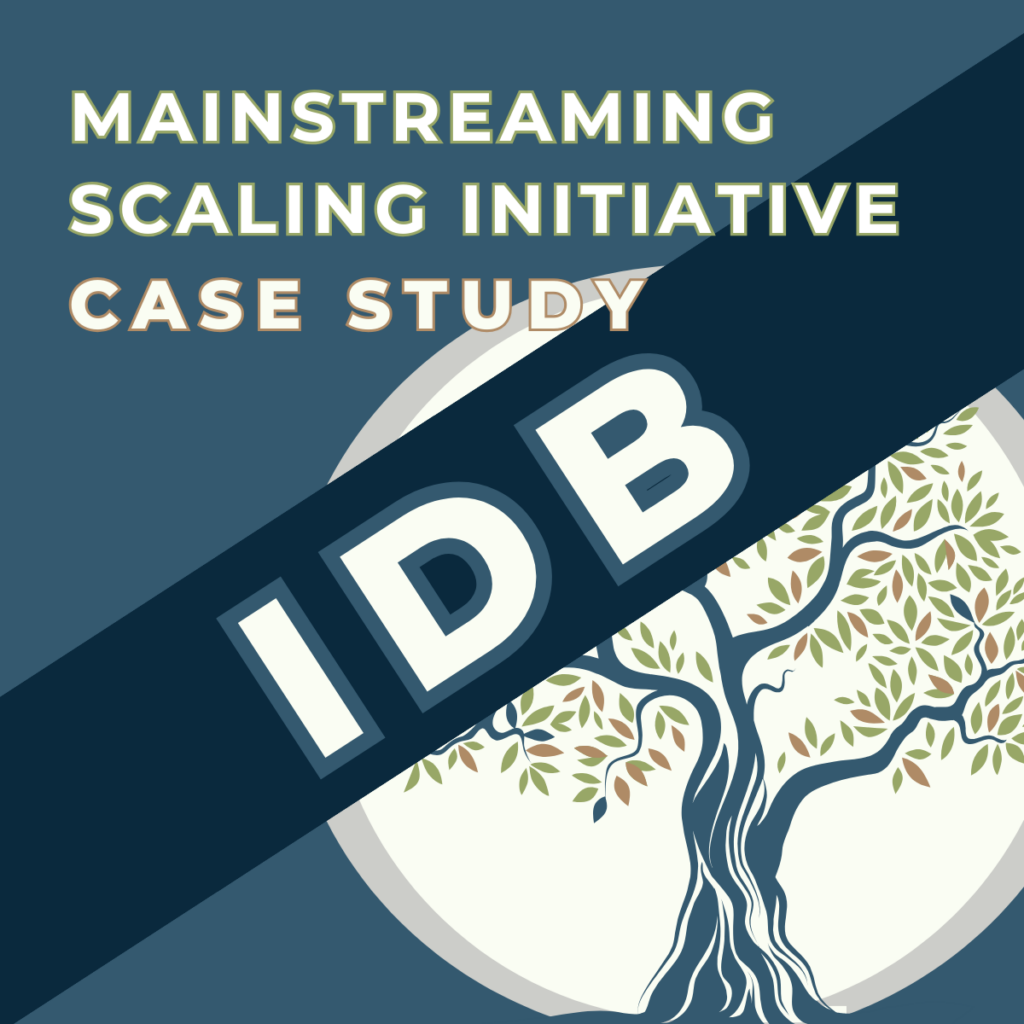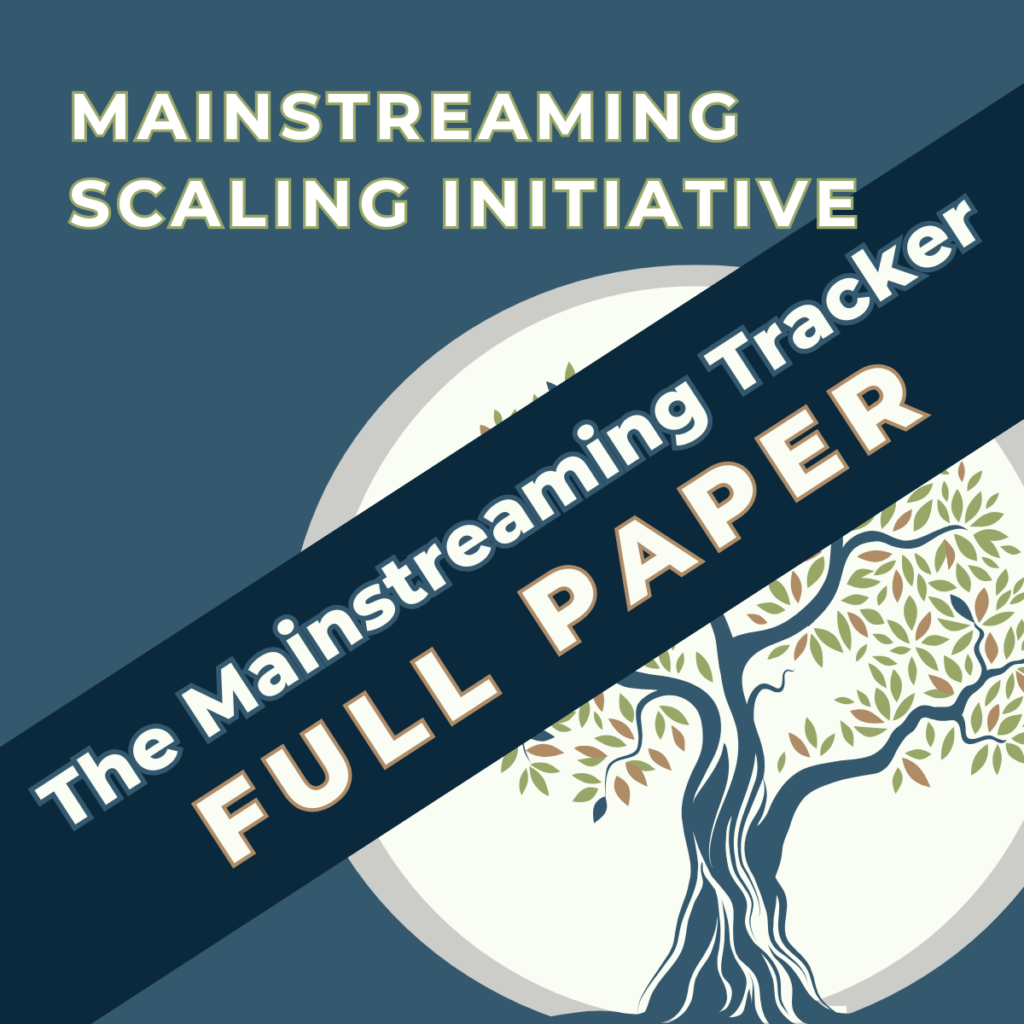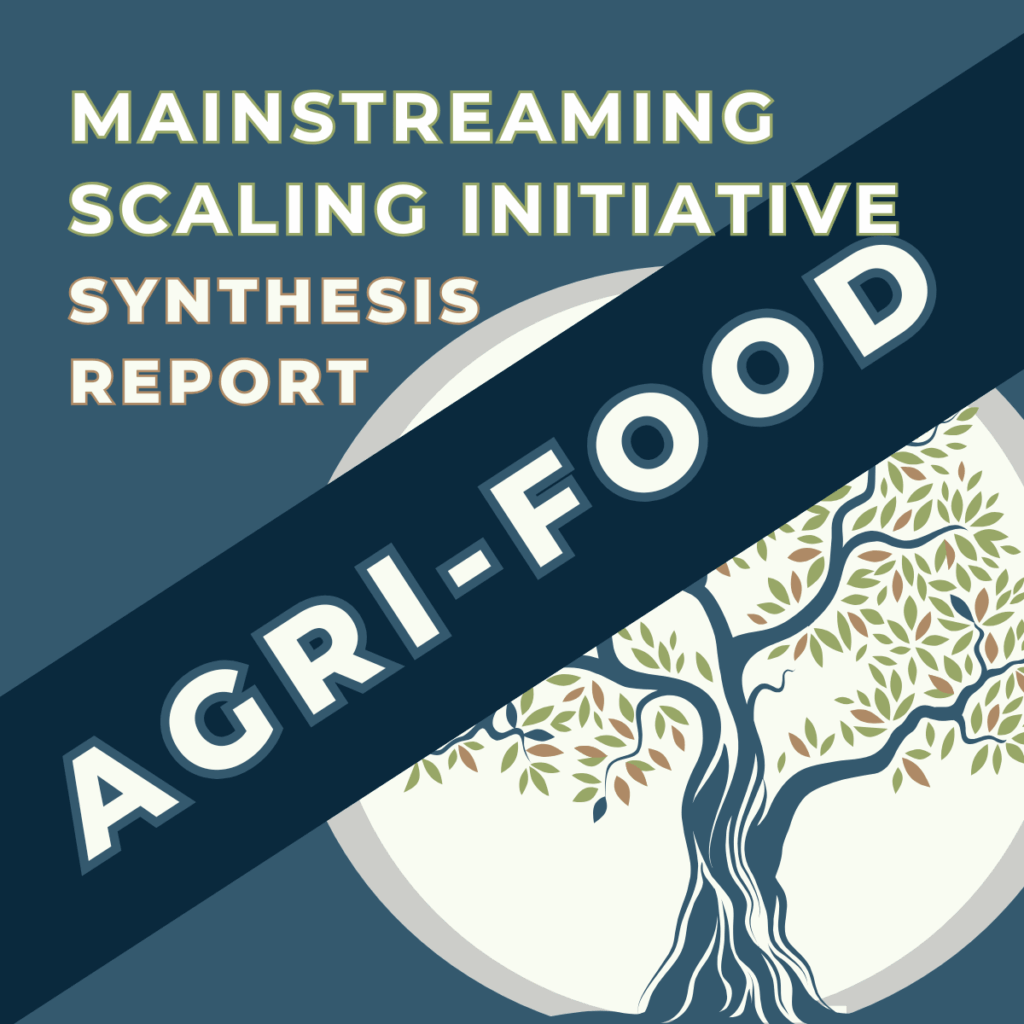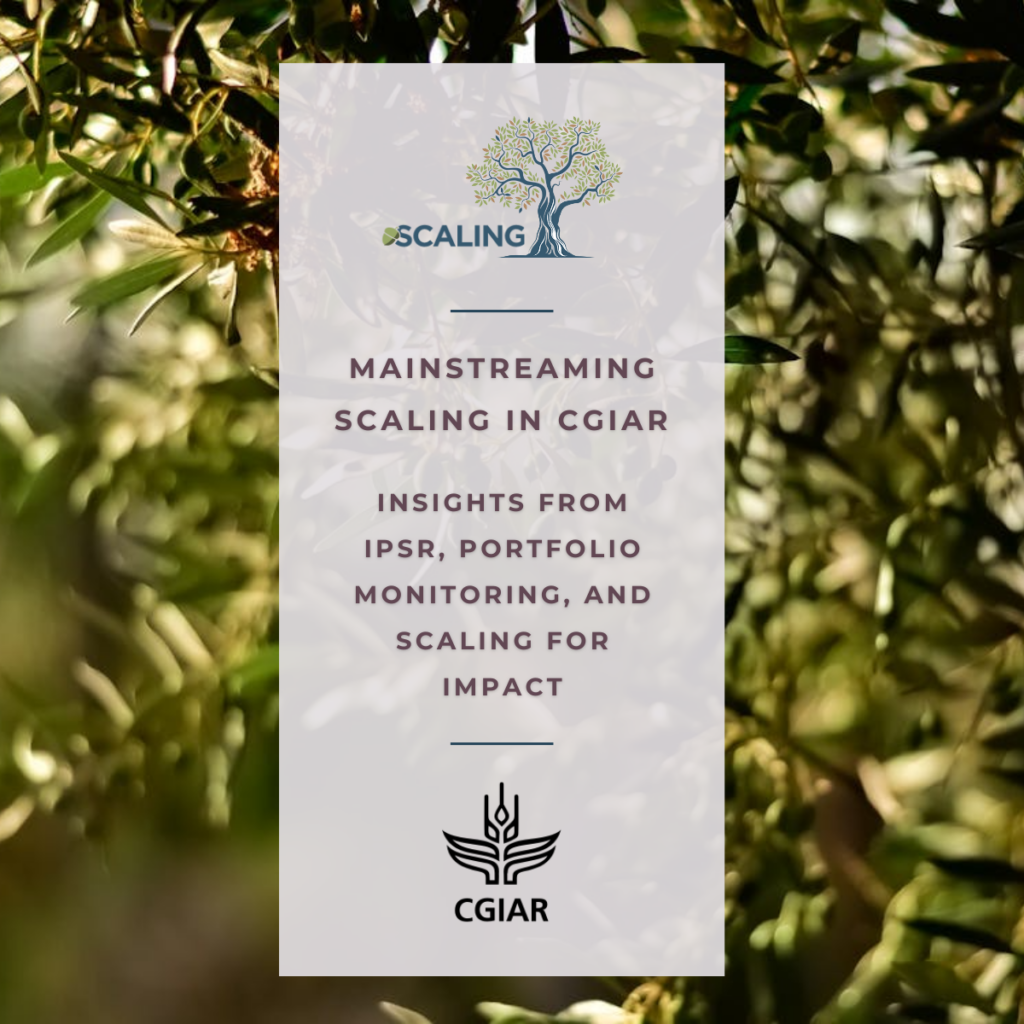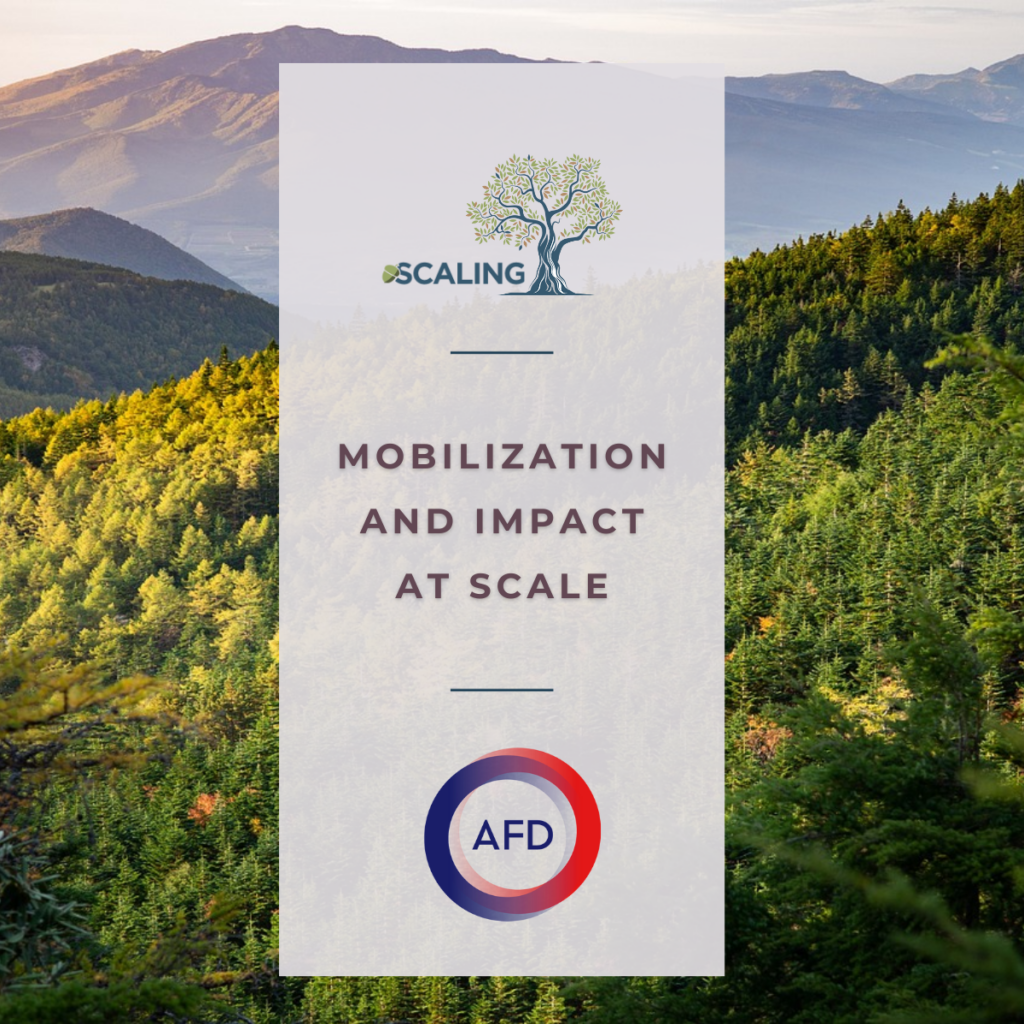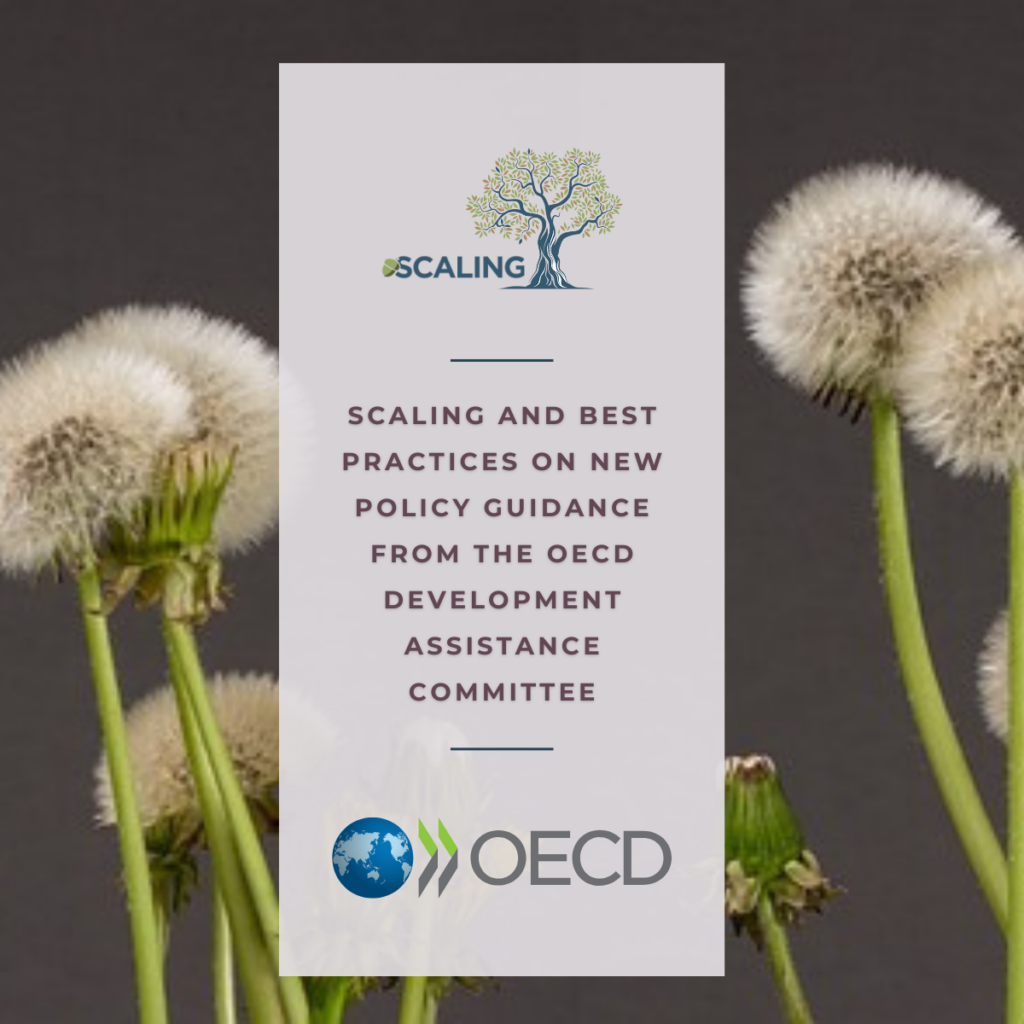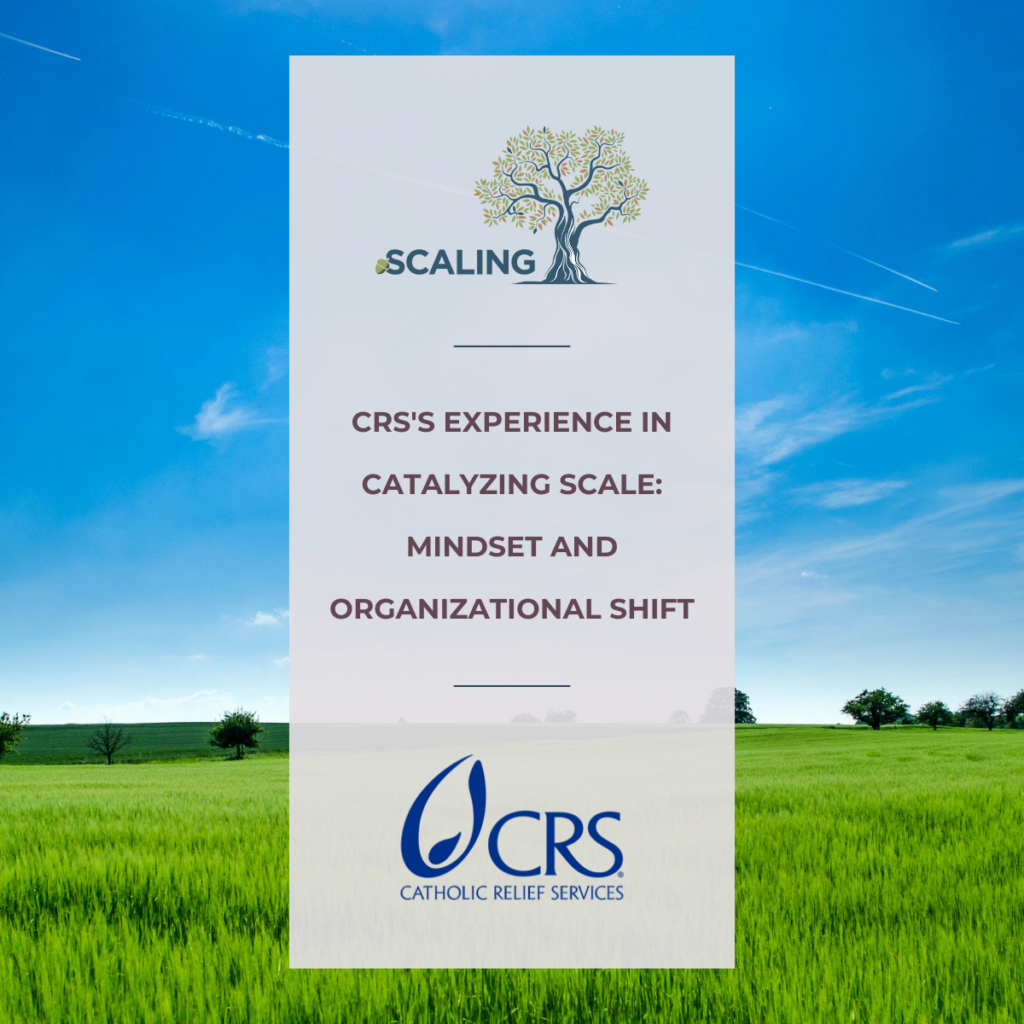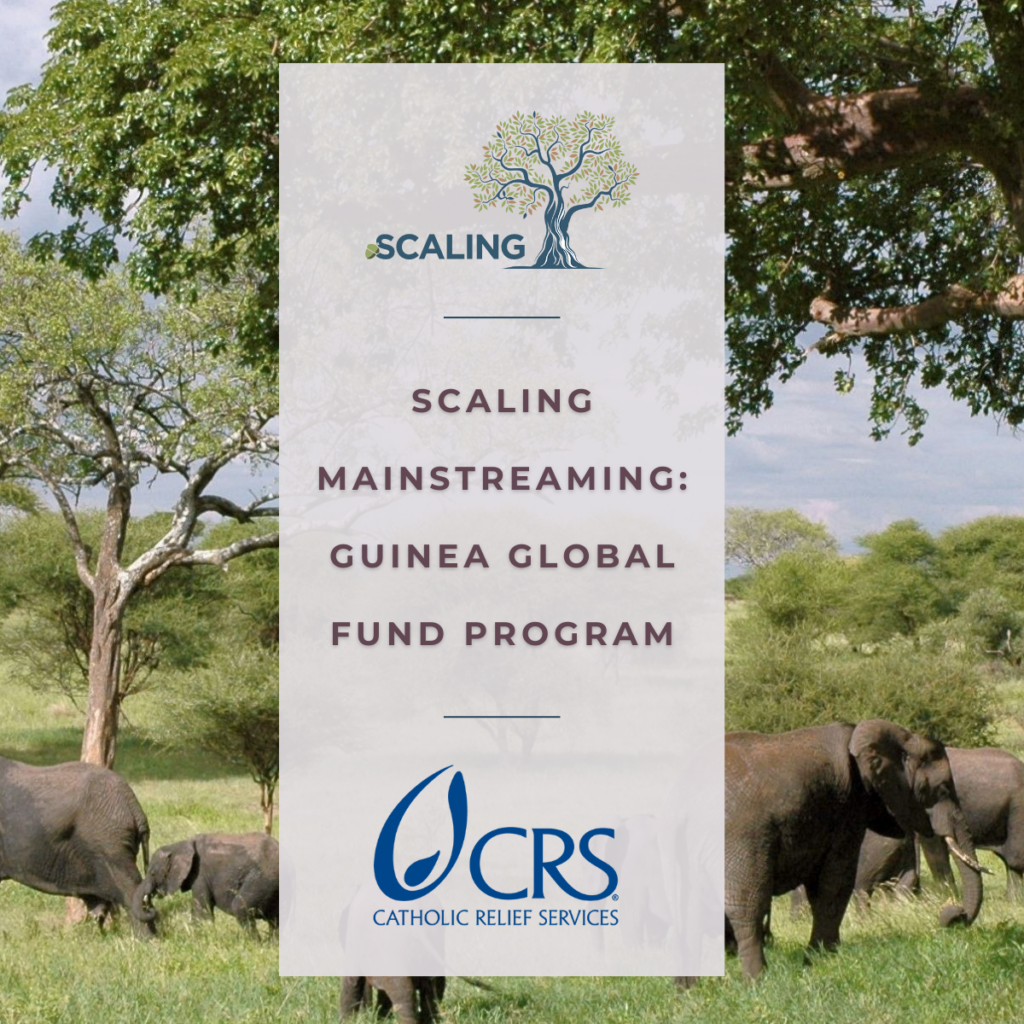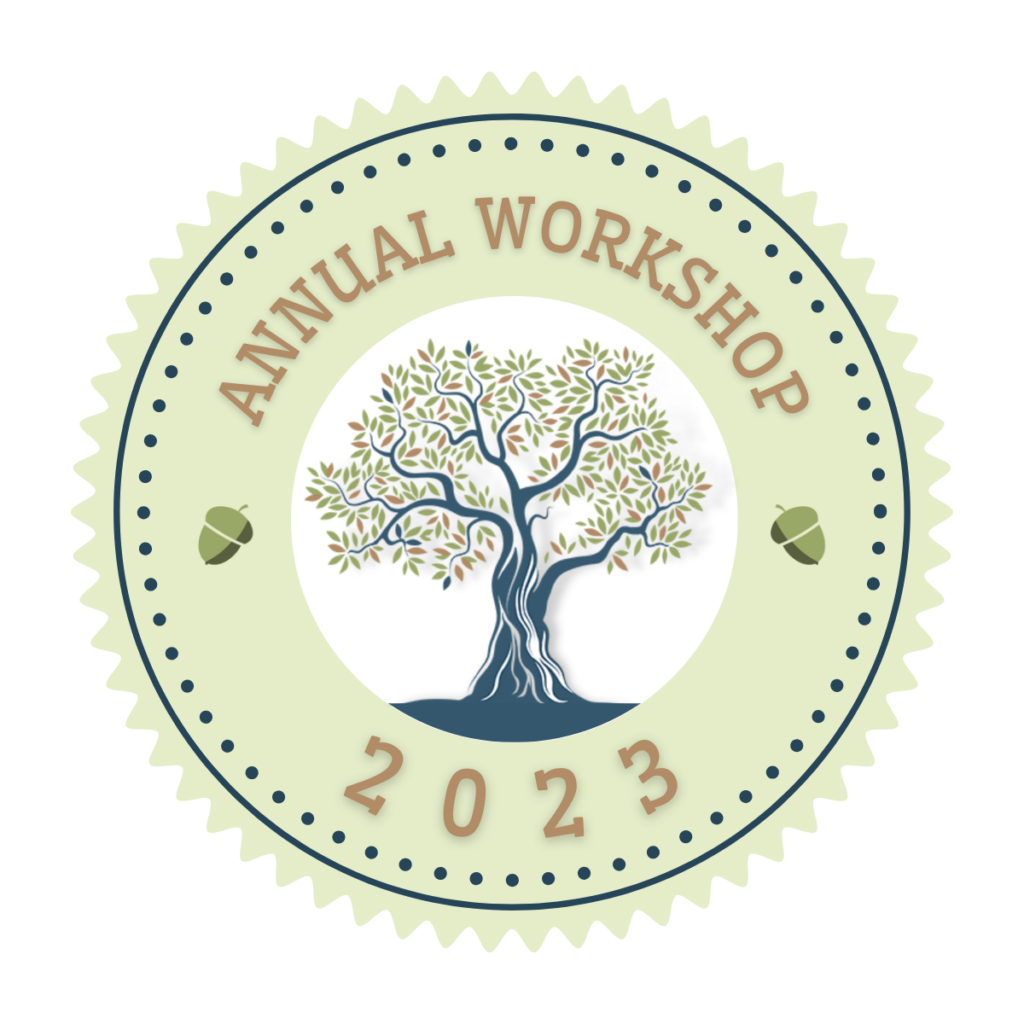MAINSTREAMING INITIATIVE
The study of mainstreaming scaling in funder organizations and the learning process it supports has been commissioned by the Scaling Community of Practice (Scaling CoP) in partnership with – and with the financial support of – Agence Française de Développement.
The study represents a three-year action research initiative that started in January 2023 and is expected to conclude in December 2025. It involves up to 25 case studies of funder organizations that partnered with the Scaling CoP in assessing their approach to scaling and options for strengthening it.
The case studies of funder scaling practices are complemented by a review of the recipient perspective, an assessment of how common evaluation methodologies incorporate scaling, and the preparation of a tracker tool that allows funder organizations to assess their progress in mainstreaming scaling.
Background
The international development community is increasingly paying attention to the need to sustainably scale development impact.
The reason for this growing interest is clear: The ambitious global development and climate goals (the Sustainable Development Goals and the Paris Agreement climate targets) can only be reached if we focus not only on how we can increase the amount of development and climate finance but, as importantly, on how we ensure the available finance is deployed for sustainable impact at optimal scale.
Many implementers and funders realize that traditional one-off project-based approaches are increasingly untenable in the face of escalating needs and scarce resources. However, we do not know how widespread nor how deep this scaling focus is among funder organizations. In particular, we do not know whether the focus on scaling is limited to lofty ambitions in mission statements and public announcements, or whether it also is increasingly embedded and effectively deployed in operational practice. Nor do we know what lessons can be learned from efforts to mainstream the scaling agenda in particular development funding organizations. (See Background Documents)
Purpose
The purpose of the study on mainstreaming scaling in funder organizations is to learn whether and how funder organizations support scaling,
to inform the members of the Scaling Community of Practice and the wider development community of the current state of support for scaling in a broad range of development funding agencies, to draw lessons for future efforts to mainstream the scaling agenda in the development funding community, and to promote more effective funder support for scaling by stakeholders in developing countries. (See Concept Note for the Mainstreaming Initiative.)
By “mainstreaming” we understand the systematic, organization-wide incorporation of support for sustainable outcomes at scale
in the mission and strategy statements of the funding organizations; in their operational policies and guidelines, financing instruments, allocation decisions and time horizons; in their administrative budget, staffing practices and incentives; and in their monitoring and evaluation practices.
A key question to be addressed in this context is to what extent and how funder agencies are willing and able to increase the agency and capacity of recipient countries and organizations for scaling
and with it the devolution of resources and resource management to them, because these are key determinants of successful scaling. Progress in this respect likely requires a fundamental shift in funder approaches to how they interact with their national counterparts and stakeholders, including “localization” of funders’ activities.
Outputs
The Mainstreaming Initiative posts case studies, analytical reports and summary documents on its Webpage.
The case studies cover a wide range of funder organizations from multilateral and bilateral official funders to foundations to large international non-governmental organizations (INGOs). Analytical reports address evaluation practices, recipient perspectives, and mainstreaming tracker tools. Summary reports provide overarching findings and lessons of the Initiative.
Impact
The vision of the work to be undertaken is to bring about widespread change in funder practices.
But achieving this vision is clearly a long-term proposition and indeed is itself a scaling task, since it means achieving a scale goal of widespread adoption of good practices for support of scaling among the large community of funder organizations. The study will involve a process of in-depth case studies of funders, engagement with their umbrella organizations (the OECD-DAC and MOPAN) and outreach to their recipient partners in developing countries, complemented by an active networking and communication effort with webinars organized by the CoP’s Mainstreaming Working Group. The ultimate aim is to bring about changes in the practices of the funders participating, and in the attention to scaling in the wider funder and development community. Further information about the Mainstreaming Initiative can be found in the Concept Note and in the Progress Report for the first six months of the study.
Organization
The Mainstreaming Initiative is led by a senior team of scaling experts and guided by a High-Level Advisory Group of seasoned development and climate leaders.
The study team consists of Larry Cooley (Project Co-Leader and Co-Chair of the Scaling CoP), Richard Kohl (Project Co-Leader and Lead Consultant and), Johannes Linn (Project Co-Leader and Co-Chair of the Scaling CoP), Charlotte Coogan (Program Manager of the Scaling CoP and Consultant), and Ezgi Yilmaz (Junior Consultant). MSI staff provide administrative and communications support, in particular Leah Sly and Gaby Montalvo.
The High-Level Advisory Group (see more here) of 11 development and climate leaders guides and supports the study team.
